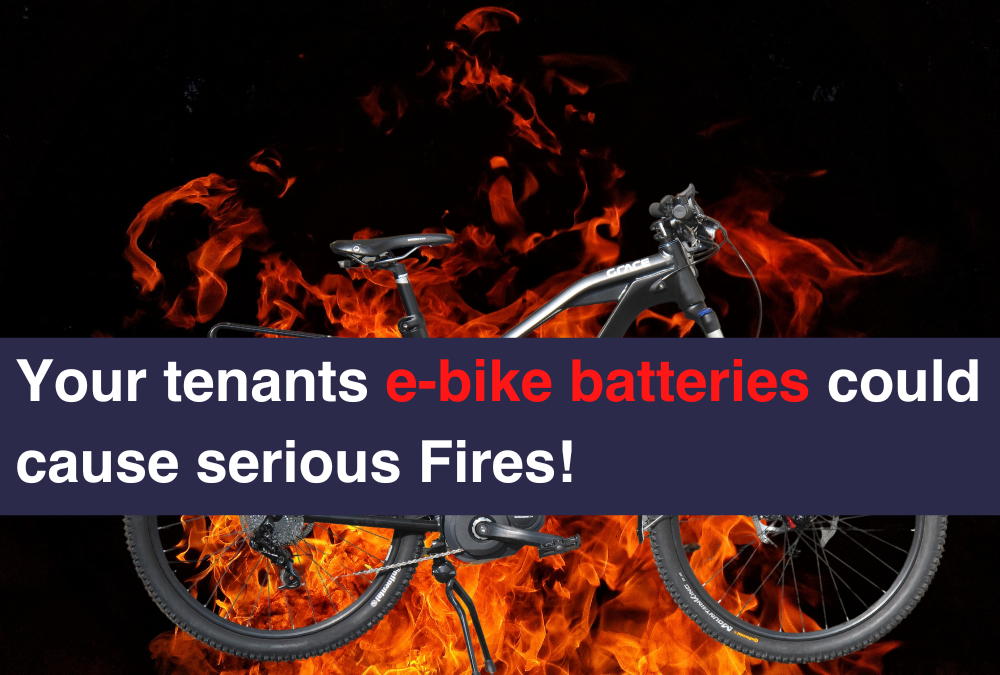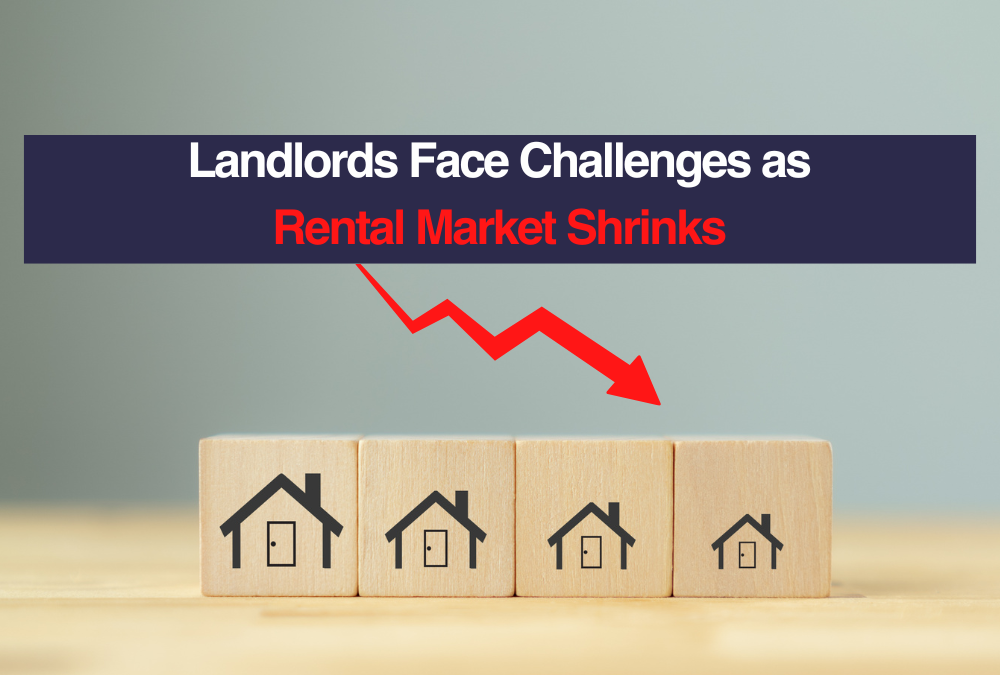E-bikes and e-scooters have been associated with more than a hundred fires already this year, some of which have been fatal.
The Guardian reported in May 2023 that there had been 102 fires associated with e-bikes and scooters so far, with at least 190 injured and eight people killed.
They are growing in popularity due to costs, health benefits, and green credentials – who doesn’t want to help the planet by reducing carbon emissions?
So the numbers of tenants owning e-bikes and e-scooters is certainly on the rise, but this surge is accompanied by the real dangers presented by fire. Read on to find out more and what you can do as a landlord to help educate your tenants and raise awareness of the risks.
Why is there a problem?
E-bikes and e-Scooters are mostly powered by lithium-ion batteries, and in some circumstances, these can explode, causing severe fires. See the report by London Fire Brigade on battery fires.
It’s true however that most batteries are safe. If a tenant purchases an e-bike from a reputable company and looks after it properly, they should be fine.
The problems tend to be when cheap batteries or chargers are purchased, for example, off the internet or when batteries are not looked after properly and used when damaged.
However, if a fire does start, it can be very dangerous. A phenomenon called ‘thermal runaway’ can occur – this is an uncontrollable, self-heating state where chemical reactions are exponentially accelerated and internal temperature go up and up.
If this happens the resulting fire can be ferocious and extremely difficult to put out. The advice given is not to try, but to save yourself by getting out of the building immediately and calling the fire brigade.
Which ones are legal?
Although e-bikes are legal, e-scooters are currently prohibited unless they are rented from approved companies in one of the designated government trial areas listed here.
They are subject to a speed limit of 15 mph (less in some areas), and riders must have a driving license – a provisional license will do so long as it has a category Q entitlement.
However, despite this, e-scooters are easy to buy and no doubt many tenants will have purchased illegal scooters and will be keeping them at the property.
When do batteries cause fires?
It seems that fires tend to happen if;
- Counterfeit batteries have been purchased – for example, cheap batteries purchased off the internet. These often lack essential safety features.
- Batteries have been damaged – for example, if they have been dropped or punctured in some way.
- The wrong charger is used for the particular battery.
- Batteries have been subject to extreme temperatures – most have a safe operating temperature of between -20°C to 60°C (4°F to 140°F).
- Overcharging – leaving batteries plugged in for long periods of time can increase the risk of fire.
What should landlords do?
You can’t really stop tenants from keeping e-bikes or scooters. Indeed e-bikes should be encouraged as they are healthy and help the environment.
If possible, though, try to provide somewhere they can be stored outside the property, for example, in a locked shed or garage (preferably with a smoke alarm). Ideally, these should have electricity so batteries can be charged here rather than in the house or flat itself. Then if a fire did occur, it will hopefully be limited to the shed or garage and will not spread to the property itself.
House rules for e-bike and s-scooter owners
It is obviously not possible for the majority of rental properties to have separate bike storage, so we would recommend having some house rules for tenants keeping e-bikes or scooters, which tenants should sign at the same time as they sign their tenancy agreement.
If you make it clear that these rules are for their safety and explain why, they should most certainly be onboard with keeping the rules.
For example, these could stipulate that:
- You be notified if they are keeping an e-bike or e-scooter at the property for insurance purposes
- All batteries and chargers must meet official safety standards
- All chargers used should be the official correct charger for the battery concerned
- Batteries should be allowed to cool before charging
- Manufacturer’s instructions should be followed at all times – in particular, note maximum charge levels and temperature thresholds.
- Batteries should not be tampered with or modified.
- Batteries should be checked carefully before charging to make sure that they have not been damaged (e.g. by being dropped) and that there are no cracks, dents, or leaks in the battery casing.
- Batteries should be kept clean, as dust and dirt build up on the battery contacts can cause them to overheat.
- Batteries should not be left to charge unattended and should be unplugged as soon as they have finished charging.
- Batteries should be disconnected when not in use and kept in a battery case or fireproof bag.
Other items to include are not to block fire escapes and not to tamper with smoke alarms – but these should already be in your tenancy agreement.
Property Inspections
Property inspections are recommended for many reasons – one of which being that they are required by many insurers. Doing a property inspection will allow you to check if your tenants own an e-bike or e-scooter.
If they do, have a chat with them about safety and draw their attention to the problems of fires. If they are charging batteries indoors, for example, in the kitchen, it is particularly important that you check the smoke detectors there!
We would also advise writing to them after the inspection, just saying that you notice that they now have an e-bike, and drawing their attention again to the dangers and safety precautions that they should take.
Insurance
Finally, check your insurance to make sure that you are covered for damage from battery fires. Most landlord insurance should provide for this but it is better to be safe than sorry.
Given the frequency and nature of these fires it’s important that we all do what we can to raise awareness and hopefully reduce the risks of fire. Hopefully you have found the above useful and if nothing else, raised awareness of a growing issue as the popularity of E-bikes continue. In most cases, common sense should prevail and keeping fire escapes clear and using the E-bike in accordance with how it was designed, especially in terms of charging, should minimise the likelihood of this becoming an issue, however fire safety never should be taken lightly and if any any doubt, do seek independent advice.
Related Articles
- Lawful and Unlawful Discrimination – Tenants & Landlords
- Getting the Most Out Of Your Viewings
- Repairs: A Guide for Landlord & Tenants
- Noisy Neighbours Tenant Advice
- Horizon Lets Top 10 Tips for Fire Safety








